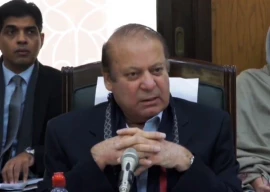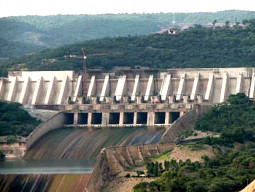
ISLAMABAD:
Scorpios with dark, hypnotic eyes; indecisive Librans; emotional Cancerians; lazy, possessive Taurians- some common zodiacal stereotypes.
And as is the case with most stereotypes, could these be rooted in some basic astrological truth? Incidentally, we must ask: can the movement and positioning of celestial bodies determine the course of our respective lives and personalities?
The great astrological debate hinges on two opposing perspectives: faith-based reasoning versus scientific/empirical validity. The former category involves treating astrology with a scholarly approach: taking history, psychology, science and religion all into account.
To accept astrology one takes a leap of faith — otherwise believing that Pluto somehow influences one’s social tendencies feels silly. Such a ‘faith-based’ acceptance leads to a deeper understanding of the discipline as a spiritual science. One enters the realm of pseudoscience — the claims are quantifiable but lack plausibility. One can’t verify ‘if I was born under planet x, I must have y and z in my life’.
This is not to say that the practice of astrology lacks tangibility. From a sociological perspective, zodiacal predictions predate major world religions and influenced early spiritualism, governance and civilian life. Before established religion and astronomy, our frustrated ancestors took to the heavens to make sense of life.
Consider the impact of astrology on governance and decision making in the Mughal Dynasty: “Under Aurangzeb, astrology played a relatively moderate role, being of academic relevance to philosophy and religion and an aid to decision-making for the ruler and administrators,” according to indianetzone.com.
Obviously, our predecessors gave more value to the art than what is currently ascribed to it: our problem lies in the widespread nature of popular astrology today — with custom reports (by sign) available online and via email. Frivolous forecasts whittled away the complexity of zodiacal and planetary alignments.
What essentially makes astrology truly complex (and therefore all the more interesting) is the paradox at its core; a contradictory blending of science and faith. There is an inherent conflict of interests: astrological predictions (by sign/constellation and planet positioning) are grounded in astronomy, recorded by date, time of birth and the exact degree of alignment. The resulting chart maps out the life and personality of an individual in accordance with pre-determined formulae and patterns, with unique psychological implications. In the way of DNA, our own astrological strands are unique and wired differently.
Professional palmist, astrologer and counsellor Tawaqqul Hussain follows a similar empirical approach. But although he values astrology as an important and enlightening pseudoscience, he believes it is far too “faith-based” to be considered rationally. Furthermore, he warns against charlatans who take advantage of those who believe in astrology dogmatically — astrology’s greatest downside.
Ultimately, interested parties should temper the inherent astrological conflict (scientific truth versus blind faith) with an outlook that fuses divergent perspectives: science and religion need not be mutually exclusive when analysing astrology.
It also helps to consider the fact that the universe is erratic — so much so that it’s difficult to discount the plausibility of occult sciences entirely. Today, enigmatic phenomena like ‘shadow particles’ and dark matter continue to elude understanding: “As the 20th century was drawing to a close, cosmologists began to converge on the idea that most of the universe is comprised of mysterious dark matter and energy” (The Science and Astrology Debate written by Astrology News Service).
Published in The Express Tribune, November 14th, 2011.
COMMENTS (7)
Comments are moderated and generally will be posted if they are on-topic and not abusive.
For more information, please see our Comments FAQ





































There are more things in heaven and earth, Horatio, than are dreamt of in your philosophy. Shakespeare
quasi, than are dreamt of in our rational sciences!
Astrology notwithstanding, It seems the scientific community is much less condemning of their own errors than the obvious fallacies of some religious doctrine. Science is evolving and therefore frequently wrong. Theories are disproven and discarded and this is rightly considered a normal part of the process. This same consideration is not granted to spiritually inclined folk. There are many studies showing the benefits to health and well being of having a spiritual life. This is accepted by mainstream science. Do I need to prove or understand how electricity works in order to use it? No. I am humble enough to know that comprehension of God would be beyond my limited human capacity.
never believed in astrology...never ever....:)
"To accept astrology one takes a leap of faith — otherwise believing that Pluto somehow influences one’s social tendencies feels silly. " Dear Author, I guess by taking a leap of faith you mean ignoring science and believing whatever tickles your fantasy irrespective of evidences that science furnishes before you. I will try to put it as clearly as possible: Science does not believe in God, does not care for faith and has no respect for pseudo sciences( in this case Astrology). Science does not entertain claims for which there are contradictory evidence. Science considers Astrology as Pseudo-science and there can be no marriage between the two. The only reason concepts like astrology have been discussed in this video below by the eminent evolutionist Dr Richard Dawkins. Have a look: http://video.google.com/videoplay?docid=-7218293233140975017